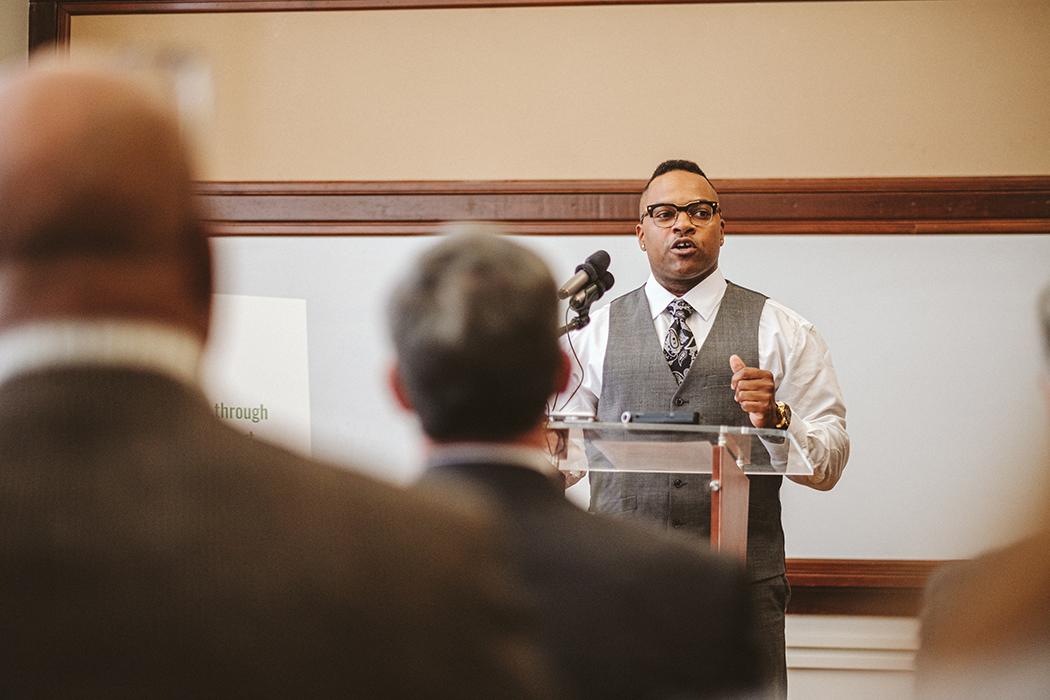After being released from prison, Hines Washington started a moving business—Hines’s Family Movers. As his business grew, Washington needed office space, but he couldn’t afford it. And, as a recently incarcerated individual, he found it difficult to secure a loan.
Washington turned to the Fountain Fund, a local nonprofit dedicated to giving low-interest consumer, vehicle, and business loans to formerly incarcerated individuals in Charlottesville and surrounding counties.
“When I came to the Fountain Fund, their arms were open,” says Washington. “They didn’t question what I did, how long I was locked up, or anything. When people come home from being incarcerated, all we want is an opportunity.”
Over the past year, Washington has also used loans from the fund to buy a new moving truck, as well as buses for his new second business, Hines’s Entertainment and Tours.
The Fountain Fund reached a milestone this year: It has distributed more than $1 million in loans to 200 formerly incarcerated individuals since 2017. Formerly incarcerated people also sit on the fund’s board, staff, and loan review committee, directly steering its programs and policies. It is currently the only nonprofit in the country that offers formerly incarcerated individuals access to capital.
The organization hopes to depress the area’s recidivism rate. Around the country, two-thirds of incarcerated people are arrested again within three years of their release. And locally, one in three people booked at the Albemarle-Charlottesville Regional Jail between 2012 and 2016 returned to custody within those four years.
“If you go anywhere else [for a loan], there’s 24 to 35 percent interest—that’s really killing people,” explains Martize Tolbert, who was one of the organization’s first loan recipients and now serves as its community engagement director. “Individuals seek out the Fountain Fund because they can’t go to traditional banks, and because of the relationship and mutuality that we have. And our 3 to 5 percent interest helps as well.”
“The money that comes in here gets recycled to somebody else,” he adds. “Our operational costs are run by funders and donors.”
The fund’s model has largely proven to be a success—85 percent of its loans are currently in good standing. Most clients have significantly improved their credit scores and their financial literacy.
“We understand that we’re going to take some losses [due to] people’s behavior and different things, but it’s not even about that with us,” says Tolbert. “We’re lending and selling hope.”
The Fountain Fund is one of a handful of organizations in Charlottesville dedicated to assisting people after they’ve been incarcerated. The Charlottesville Area Community ID Program helps recently released individuals secure photo identification, and the City of Charlottesville runs a program called Home to Hope, which connects people with clothing vouchers, hygiene necessities, and other resources.
In addition to loans, the Fountain Fund runs a peer mentorship program, which partners veteran clients with new ones, as well as an emergency assistance program for all clients. Tolbert also regularly visits local jails to teach wellness and recovery classes to incarcerated individuals. This year, the nonprofit will expand its service area to Richmond, as well as open a satellite office—in partnership with The First 72+, which offers reentry services—in New Orleans.
“We all know addiction and all these different behaviors are non-linear, so people are going to struggle going up, and they may even fall back off to go back up—but that support is crucial,” says Tolbert. “To have someone believe in you, that has been there through the things that you’ve been through, is everything.”
